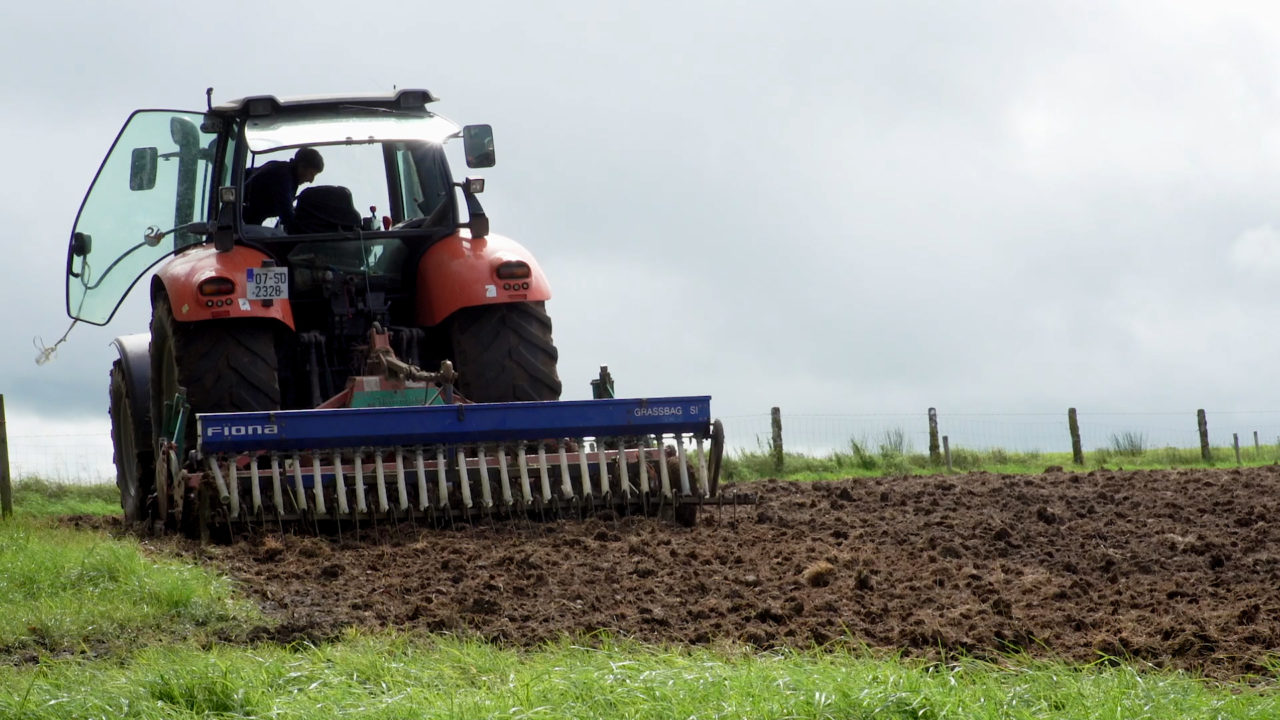Over the past few weeks, farmers have seen that reseeded grass swards have performed better under this challenging, slow growth period.
To ensure that grass production on farms is performing to its maximum, farmers are encouraged to regularly soil test and examine the levels of fertility in terms of pH and nutrient availability.
One farmer who is opting to refresh and reseed the grass in paddocks on his farm this year is Shane Cranny, a Teagasc Green Acres Calf to Beef Programme participant.
This week, Agriland spoke with Shane, who is choosing to reseed approximately 11.5ac this year on his farm in Co. Carlow – with 3.5ac already ploughed in recent days, after being burnt off.
‘Weeds had taken over the pasture’
Speaking with Shane about his reseeding strategy, he explained that the plan was to reseed the full 11.5ac this spring – but due to the delayed growth and recovery of grass in paddocks, he decided to only begin with 3.5ac this month and then plough the remaining acres later in the year.
Commenting on his reasons for reseeding, he explained: “The field was reseeded around 10 years ago, but during the drought the land went dry and we had mowed the field and the grass was just burnt off.
“After this a lot of weeds started emerging such as buttercups, thistles, docks and even ragwort – the grass swards were never right after it.”
Cultivating for reseeding
Shane has chosen to plough his paddock rather than min-till (minimal tillage), as he goes on to explain:
“The field has been ploughed and will receive a few runs of the disc harrow just to create a fine seedbed. Once that’s completed it will be sown with a one pass system.
“I am applying 2t of lime/ac because from looking at the soil test results, the pH was quite low and needs a lift. Once the field has been sowed it will receive three 50kg bags of 10-10-20 chemical fertiliser to the acre.”
The grass seed being sown is called ‘Sweetbite’ and includes varieties such as Abergain, Astonenergy, Aberchoice and Drumbo – along with a white clover blend.
Once the crop has germinated and emerged, Shane said that he will spray the young grass with a clover-friendly, post-emergence spray approximately six weeks after, to eradicate the presence of weeds.
The plan going forward for Shane is to reseed 10% of the farm each year, in order to keep grass swards fresh and productive.

